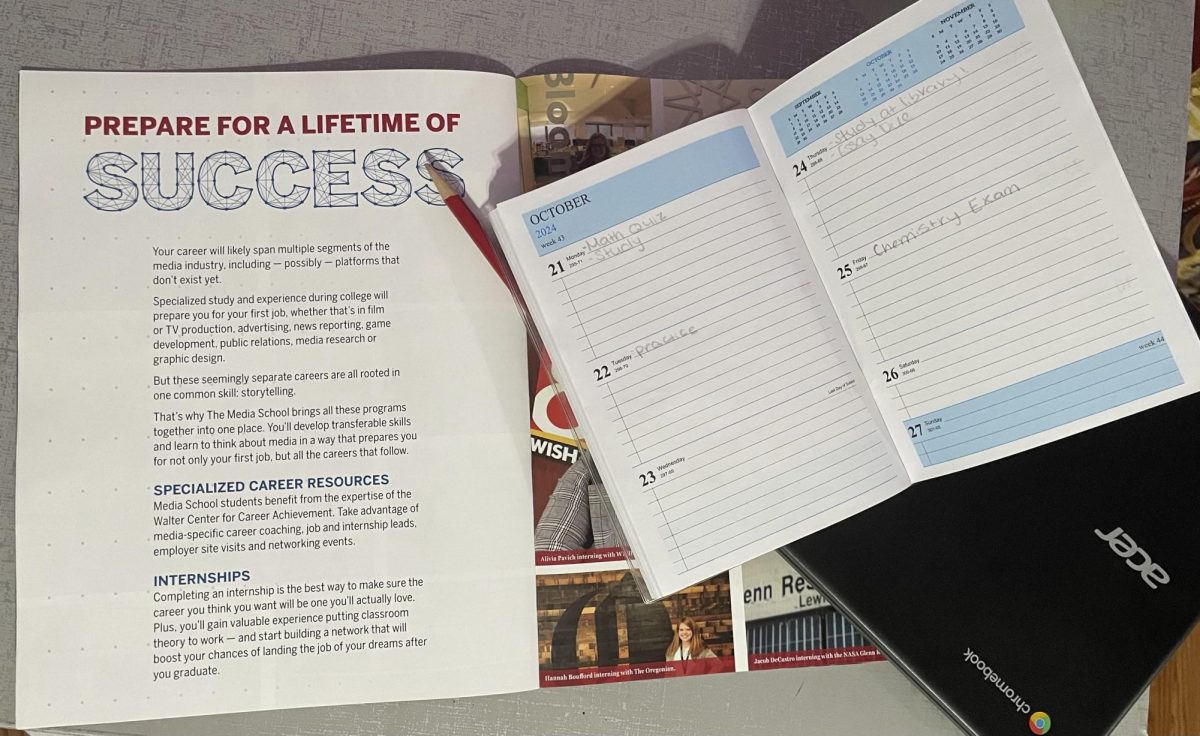By: Jessica Patton
Journalism I Student
Maria Johnson bows her head before her food, clasps her hands together, and says a silent prayer. No one else around her does the same before eating, probably too enticed by the aroma of cheeseburgers wafting through the air. Where is she? She’s at school of course.
“I try to be in constant contact with God all the time,” Johnson, a sophomore, said. “He knows me better than I know myself, considering he created me and all. So communicating with Him throughout the day is super helpful in getting through high school. I’m not embarrassed. It’s not a big show. It’s not me climbing on the lunch table and meditating for half an hour. There’s nothing wrong with meditation (we have to listen and not just do all the talking), but praying is not for other people to see how ‘good’ I am.”
The issue of Christianity’s place in school has always been an issue. The neverending battle between teaching people what actually happened without seeming biased has always been an issue. What should schools teach children? How much do they need to know? Schools have to be careful about skirting around the sensitive area of religion, because someone is always bound to get offended. However, students are legally able to pray, read religious material, and talk about their faith at school, even though prayers were outlawed in public schools in 1962 by the United States Supreme Court.
“I feel free knowing that I won’t get in trouble for expressing my faith at school, which is a huge blessing, considering what some people go through in other places,” Johnson said.
Roger Shouse, pastor at Charlestown Road First Church of Christ, feels the same way as Johnson about people’s freedom to express their faith in school.
“Schools don’t promote Christianity, but they don’t discourage it either,” Shouse said. “They’ll allow you to have personal religion, but they don’t promote any one specific religion.”
Of course, even though students are allowed to express their faith in school, it’s not always easy. It’s up to them to be courageous enough to bring up an uncomfortable subject.
“I struggle with incorporating God in my school life for sure,” Johnson said. “I’m not proud of that, but, heck, it’s not easy to talk about what people don’t always want to talk about.”
Ever since the humanism movement really took off in 1929 when Charles F. Potter founded the First Humanist society of New York, Christianity has been shut out of schools more and more. It used to be that kids were led in prayer every day in schools, now, in public schools at least, no prayers are led. Since not all kids are exposed to prayers nowadays, that makes it a little more difficult for students to share their faith with other people.
“If God isn’t incorporated enough in schools, it’s because we as Christians aren’t incorporating Him enough in our day to day relationships and conversations,” Johnson said. “I don’t expect schools to force classes about my faith to other students. I hope that never happens, because the whole point of God’s love is that we’re not forced to obey or agree. That wouldn’t be love at all. If there’s any pressure or restriction that someone feels to not ‘express their religion,’ as you say, it’s most likely coming from their peers or just the common fear of being judged by others’ opinions. I’m so glad I’ve been freed from all the judging that should go to me, though. I don’t have to worry about kids at school judging me. Not that it won’t happen, just that it doesn’t matter. The One I’m living for isn’t of this world, so why worry about what this world’s opinions? Of course, I’m not perfect, so I’m not completely confident 24/7. If I was, I wouldn’t need a Savior at all. Ha!”
Due to the separation of church and state, and also the Constitution, churches don’t have a say on how religion is run in public schools. Some preachers could believe that God needs to be incorporated into schools, or others could believe that God doesn’t need to be incorporated into schools more. Based on their circumstances, though, one could rightly say that preachers believe that schools are in need of God as an active role.
“I think that God is talked about too little in schools,” Shouse said. “I think teachers can’t talk about God because of the school systems. Because they fear losing their jobs, they don’t express their faith. Teens are too shy to talk about their faith.”
Though schools are cutting out the preference for religions and aren’t talking about Christianity as much anymore, students are still getting educated on the other religions that are out there. This has caused a huge controversy being as it is that schools hardly discuss Christianity. It has sparked bitter feelings and resentment that cause prejudices.
“I understand the need to keep religion out of school, but to me, it seems a bit biased,” Tamara Faulkner, mother of NAHS sophomore Katie Faulkner, said. “I have not experienced this personally, but I have read news articles about Christian children not being able to express their views, but other religions being able to. To me, this seems wrongfully biased.”
It’s not completely true that students can’t express their faith in school. It is true that students are legally allowed to pray, and Johnson does it all the time.
“It’s awesome to talk to God in school,” Johnson said. “Sometimes you can be in a crowd of people and still feel alone. I never have to be alone. And best of all, it doesn’t have to be an audible conversation. That could be a little disruptive during a discrete math test.”
Shouse feels the same way about teens praying in school.
“I think teens with real faith will believe wherever they are,” Shouse said.
The controversy for Christianity to be incorporated for schools will continue to rage on until something is decided upon. Christians will push for their religion to be heard more in school systems, and other people will ask for religion to stay out of school to try to create a fair learning environment for everyone. No one knows what the future could hold for the placement of religion in schools.
“If Christianity was incorporated in school more I honestly think there would be a big change,” Johnson said. “A positive change. Acceptance and caring and sacrificing for others and forgiving each other when we mess up, since people like me mess up a lot, and since we ourselves have been forgiven. I hope for that change. I want to be a part of that change. Change isn’t easy. This change takes love.”








Flea • Apr 4, 2012 at 1:33 pm
Great! Love what you’re doing for God! Win them over!